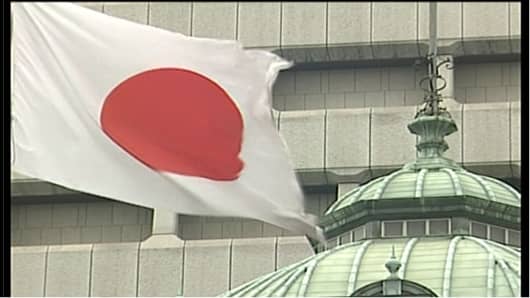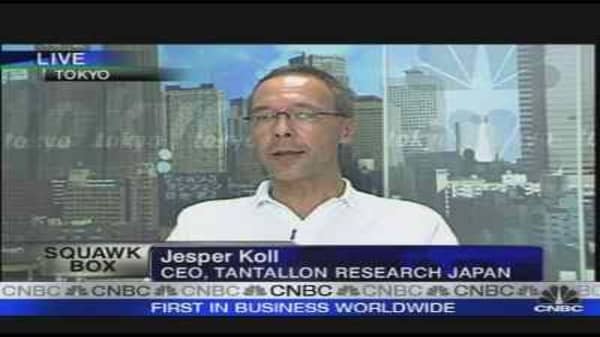Japanese inflation hit a new decade-high in July, topping market expectations and reinforcing views that high oil and food prices are dealing a blow to consumers as Japan faces a likely recession.
Unemployment unexpectedly fell and industrial output surprised with a small rise, but the data was not enough to change the bleak outlook for the economy.
While annual core inflation rose to 2.4 percent, analysts said it was unlikely to prompt the Bank of Japan to move interest rates from their low at 0.5 percent for a while as it eyes fall-out from a global slowdown.
As higher costs of energy and basic goods hit people and small companies, the government is expected to finalize on Friday an economic package that Japanese media reported would total around 10 trillion yen ($91 billion) but would involve only around 1-2 trillion yen in new spending.
"At first look, the CPI's rise above 2 percent may be seen as a factor to prompt the BOJ to raise rates soon, but as it has been saying that the impact of high oil prices will come off in the future," said Junko Nishioka, economist at RBS Securities Japan. "It is the downside risks to the economy that will make the BOJ hold fire."
The rise in the core consumer price index (CPI), which exclude fresh fruit, vegetables and seafood but include oil products, was slightly above a consensus market forecast for an increase of 2.3 percent.
The pace of core consumer inflation has been accelerating in Japan due to hefty rises in commodities and energy but the central bank says it has yet to see this leading to broad-based price increases.
The task of juggling inflation risks and the economic slowdown is less complicated with the BOJ than other major central banks, given Japan's still relatively tame inflation.
Japan's unemployment rate surprised with a slight dip to 4 percent in July, but in a sign that hard times still lay ahead, the ratio of jobs to applicants fell to its lowest in nearly four years.
Japan's industrial output, which fell in both the first and second quarters this year, rose 0.9 percent in July , against a 0.5 percent drop expected by economists.
Manufacturers' output, the core component of production, is expected to fall 2.9 percent in August but to increase 3.4 percent in September.
For more than half a century, two quarters of declining industrial output have signaled a recession in Japan.
Some analysts expect production to fall for the third straight quarter through July-September due to slowing exports, which would be the longest such decline since 2001.
Most Japan economy watchers, including government officials, see Japan either heading into a recession or already in one.
Japan measures a recession as a downturn in the economic cycle, which varies from the more widely used definition of two straight quarters of economic contraction.




